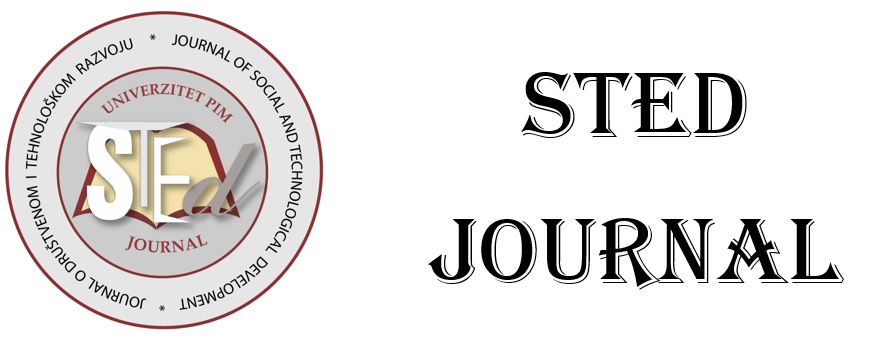
More articles from Volume 4, Issue 1, 2022
THE INFLUENCE OF WORK MOTIVATION, TRAINING AND WORK PERFORMANCE DISCIPLINE OF THE STATE CIVIL APPARATUS AT CIVIL SERVICE POLICE UNIT KNOWN AS “SATPOL PP” AND MERAUKE DISTRICT FIRE DEPARTMENT
CORPORATE SOCIAL RESPONSIBILITY IN BANKING INDUSTRY
THE ASSESSMENT OF THE FILAMENT EXTRUDER EQUIPMENT FOR 3D PRINTING METHOD
COMPARATIVE ANALYTICAL DATA OF AIR QUALITY IN BANJA LUKA CITY
THE POSITION OF NATIONAL MINORITIES IN THE WESTERN BALKAN COUNTRIES
Article views
THE POSITION OF NATIONAL MINORITIES IN THE WESTERN BALKAN COUNTRIES
Faculty of Philosophy, University of East Sarajevo , Lukavica , Bosnia and Herzegovina
Received: 03.02.2022.
Accepted: 30.04.2022. >>
Published: 30.05.2022.
Volume 4, Issue 1 (2022)
pp. 55-66;
Abstract
The paper analyzes the position of national minorities in the Western Balkans region, with an emphasis on the countries created through former SFR Yugoslavia’s dissolution, which are characterized as new national states. It has been pointed to the specificities of this form of national state, primarily nationalism as the basis in all the domains of functionality, which is the main reason for the negative relation toward minorities. The accession to the European Union is the main motivation factor toward solving the issues of the minorities in this region. The situation in Bosnia and Herzegovina is especially complicated considering that the specific solution of national minorities’ status is one of the causes of stagnation of this country in European integration process.
Keywords
References
Citation
Copyright
All papers are licensed under a Creative Commons Attribution 4.0 International License.
Article metrics
The statements, opinions and data contained in the journal are solely those of the individual authors and contributors and not of the publisher and the editor(s). We stay neutral with regard to jurisdictional claims in published maps and institutional affiliations.











